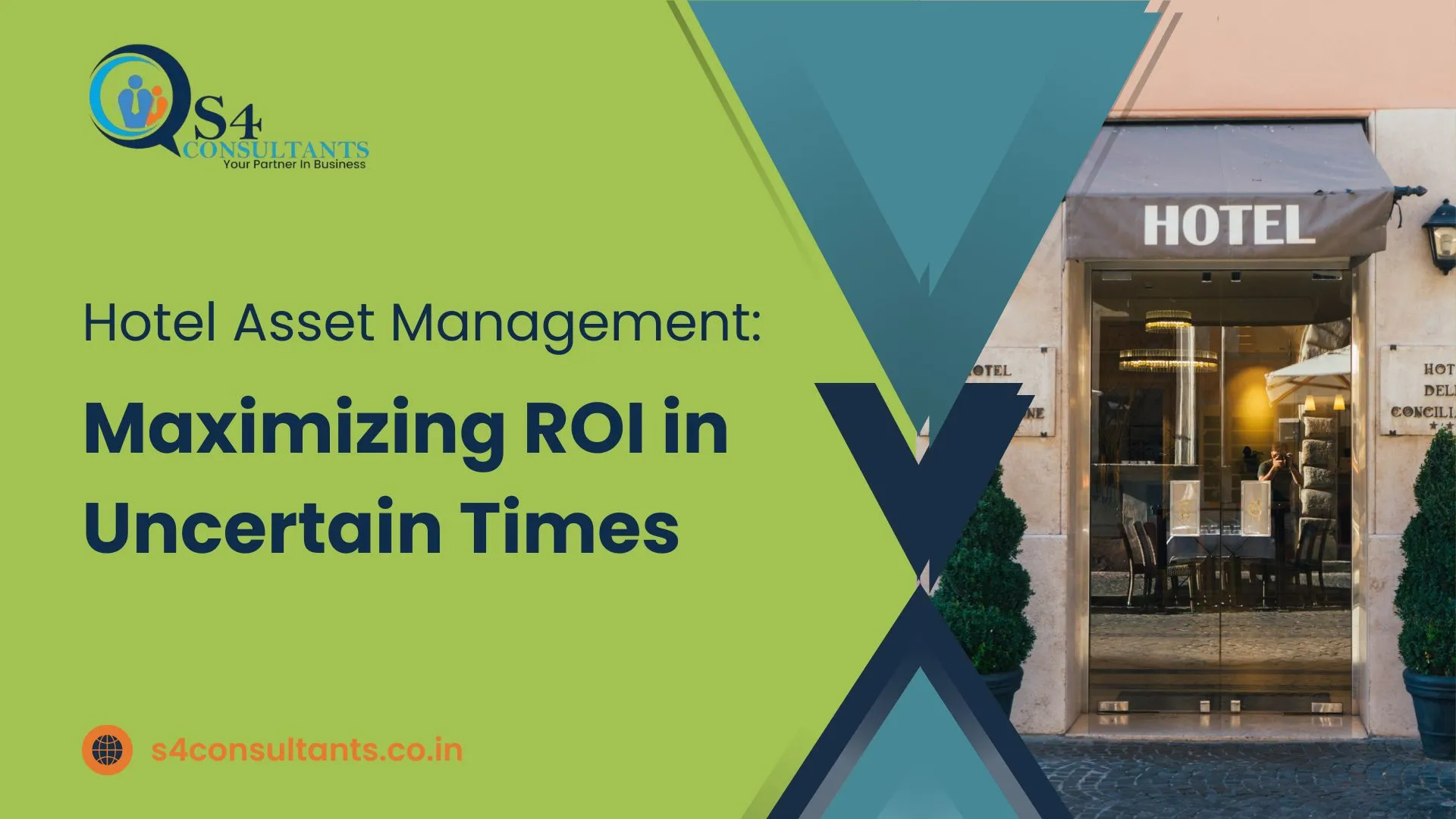Tech Investments Every Hotel Business Needs in 2025
December 23, 2024

In economic unpredictability, hotel asset management is crucial for maximizing returns and ensuring business sustainability. With factors like inflation, changing guest expectations, and increasing operational costs, the role of asset management in maximizing hotel business ROI is more important than ever. This guide explores effective strategies to optimize resources, maintain market positioning, and enhance profitability.
Hotel asset management involves structured strategies to oversee and enhance the value of hotel properties. It encompasses all operations, financial oversight, and property maintenance to increase asset value and hotel business ROI.
Operational Efficiency: Streamlining daily operations to reduce costs and improve service.
Financial Oversight: Maintaining profitability through budget control and performance analysis.
Capital Expenditure (CapEx) Planning: Allocating resources to high-return improvements.
Brand and Market Positioning: Ensuring the hotel’s competitive edge in its market.
This holistic approach makes hotel asset management essential for sustainable growth and market adaptability.
For effective hotel asset management, monitoring KPIs such as RevPAR (Revenue per Available Room), ADR (Average Daily Rate), GOP (Gross Operating Profit), and NOI (Net Operating Income) is essential. These indicators provide insights into revenue, operational efficiency, and profit margins, directly influencing hotel business ROI.
To accurately assess performance, hotels should benchmark against industry standards and regional competitors. This comparison highlights strengths and areas for improvement, allowing asset managers to set realistic, data-informed goals.
Data-driven insights allow hotels to optimise pricing strategies, occupancy rates, and service offerings. By examining guest behaviour and seasonal trends, hotel consulting services can identify opportunities to maximise hotel business ROI.
Dynamic Pricing: Adjusting room rates based on real-time demand helps hotels maximise income during peak seasons and maintain steady bookings year-round.
Diversified Revenue Streams: Offering additional services, such as dining experiences, spa packages, and event hosting, provides valuable revenue beyond room bookings, which is especially beneficial during economic downturns.
Efficient Staffing and Labor Management: Labor costs account for many expenses. Strategic staffing based on seasonal demand keeps service quality high while controlling expenses.
Technology Integration for Cost Control: IoT for energy management and automated check-ins streamlines processes, reduces utility costs, and enhances guest convenience.
Personalized services and unique amenities foster loyalty and repeat bookings. Offering loyalty programs, tailored experiences, and seamless digital services enhances guest satisfaction, positively impacting hotel business ROI.

In uncertain times, strategic CapEx allocation is essential. For instance, room renovations improve guest satisfaction and justify premium rates, while sustainable upgrades reduce costs and attract eco-conscious travelers. Hotel consultants in India often emphasize prioritizing impactful investments to drive long-term value.
A balanced approach to CapEx ensures that immediate needs and future growth are aligned. Short-term investments that improve guest experience can immediately increase ROI, while long-term projects support sustainable value growth.
Incorporating energy-efficient solutions, like LED lighting and water-saving fixtures, lowers operational costs and appeals to a sustainability-focused market. Investments in smart technology—such as automated room settings and occupancy sensors—enhance guest comfort while optimizing resources.
Read Also: 5 Ways a Hospitality Consultant Can Revitalize Your Hotel’s Operations
Economic downturns, natural disasters, and labor shortages are common risks for the hotel industry. Identifying these challenges enables hotels to develop proactive responses, preserving hotel business ROI during difficult times.
Building a flexible risk management plan helps hotels maintain stability. A diversified marketing strategy, for instance, can counter international travel restrictions by targeting domestic travelers, sustaining occupancy rates and revenue.
Comprehensive insurance and legal protections are essential. These safeguards prevent severe financial setbacks, ensuring that hotels can recover from unexpected challenges with minimal disruption to their hotel business ROI.
The Role of Hotel Consultants in Maximizing ROI
Hotel consultants bring industry insights that support operational improvements, investment planning, and strategic growth. An experienced consultant helps identify cost-saving opportunities, assess property performance, and suggest value-driven investments.
Choosing a consultant with expertise in hotel asset management can significantly impact a property’s ROI. An ideal consultant will have a strong regional track record, industry knowledge, and a strategic mindset.
A dedicated consulting team can enhance a hotel’s value through comprehensive solutions, from market analysis to CapEx planning. With expert guidance, hotels can adapt to market shifts while maximizing revenue, minimizing risks, and ensuring sustainable growth.
Hotel asset management is a vital tool for navigating today’s unpredictable market. Hotels can improve their business ROI and secure a profitable future by focusing on efficiency, strategic investment, and resilience. For those navigating the competitive hospitality landscape, a structured approach to asset management offers the insight and adaptability needed to thrive.

December 23, 2024

November 6, 2024

© Copyright 2025 Consult S4 Consultant, Designed by That Rank thatrank.com

